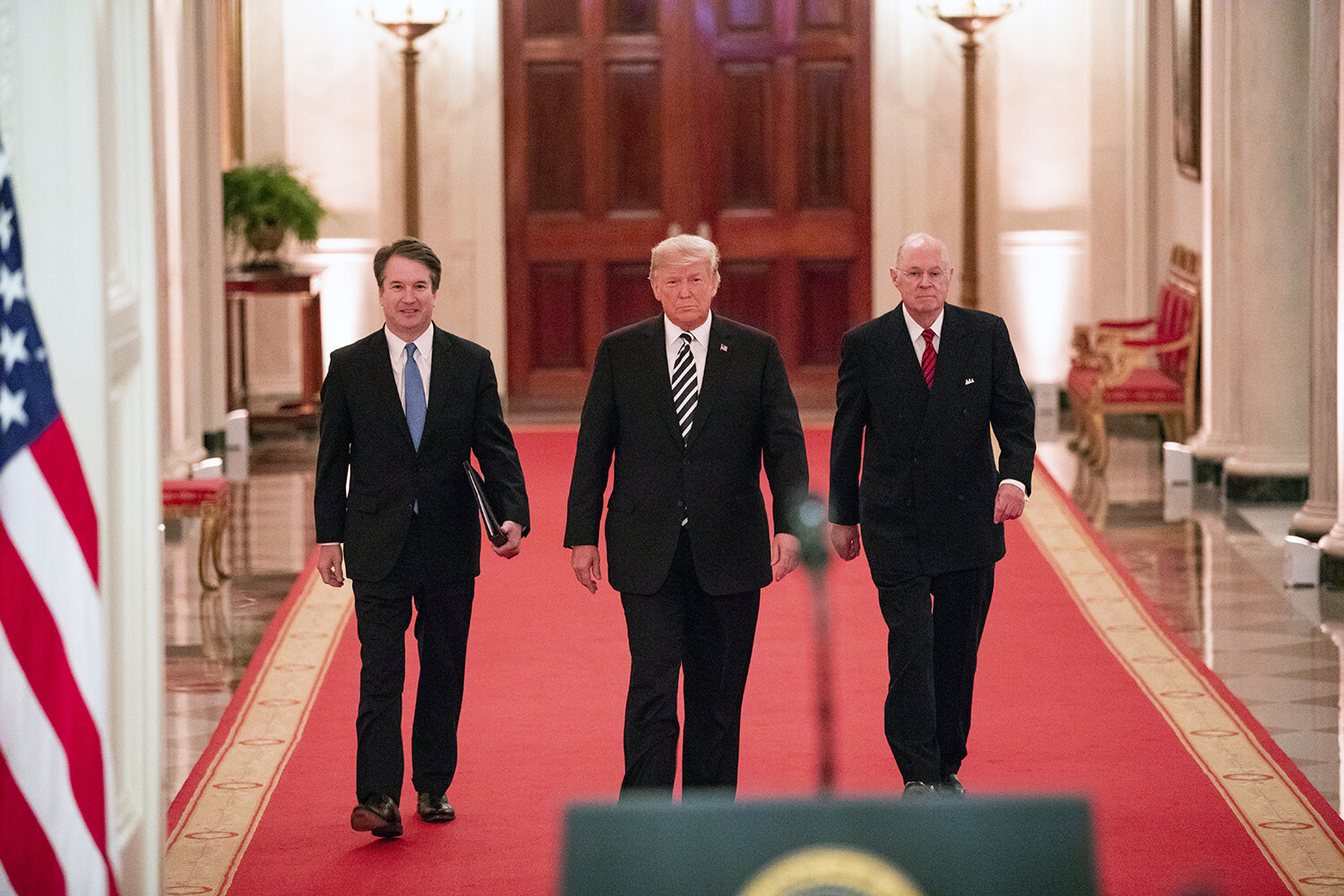Compass Gender: Nancy Pelosi on 100 Years of the 19th Amendment
Speaker Nancy Pelosi spoke in honor of Women’s History Month in Georgetown’s Gaston Hall. (Claire Beezley)
Speaker Nancy Pelosi (D-CA) spoke at Georgetown University on March 5 in honor of Women’s History Month. Though her conversation with Sirius XM Radio’s Julie Mason began with a celebration of women’s suffrage in the United States, Mason and the audience members took the opportunity to ask Pelosi about many political issues affecting women today.
A Lesson in History
Pelosi kicked off the conversation on the 19th amendment by making it clear that women were not “given'' the right to vote—rather, activists fought, marched, and starved for years to achieve it. She connected the achievements of women’s rights activists of the past to her own experience making history as the first female speaker of the House. When she found out she had been elected to that position, Pelosi felt the presence of trailblazing suffragists: Susan B. Anthony, Elizabeth Cady Stanton, Lucretia Mott, Sojourner Truth, and Alice Paul “were all sitting there on that chair with me.”
Pelosi celebrated the fact that more than 100 women are serving in the House on the 100th anniversary of women’s suffrage. She did not hesitate to mention that 91 belong to her own party, while only 16 represent the GOP. The disparity in representation between Democratic and Republican women in Congress has been attributed to a number of factors, including that educated women tend to lean left politically, and Republicans generally eschew what they label “identity politics,” which leads to fewer Republican voters prioritizing electing women. Pelosi pointed to the Democratic Party’s active choice to improve its female representation, and she added that she hopes the proportion of women increases on the other side of the aisle as well.
ERA, 50 Years Too Late?
While 38 states have ratified the Equal Rights Amendment, three ratified after the 1982 deadline, and five have since voted to rescind their initial ratifications.
Mason quickly steered the conversation to a more contentious topic—the Equal Rights Amendment (ERA), a proposed constitutional addition that would specifically prohibit discrimination on the basis of sex. The amendment passed in Congress almost fifty years ago, but only 35 states ratified it, falling just short of the required 38. Although Congress set a deadline of 1979 (and later 1982) for the amendment’s adoption, Illinois, Virginia, and Nevada have since ratified it, bringing the total to the necessary 38. However, five states have withdrawn their initial ratifications. The legal validity of both the late adopters and retroactive withdrawals is up for debate.
Last February, Congress voted to remove the 1982 deadline from the amendment, sparking even more legal concerns. Speaker Pelosi, a longtime supporter of the ERA, spoke strongly in favor of the bill on the floor of Congress.
On Thursday, Pelosi reaffirmed her support of the amendment, reminding listeners that the Constitution currently does not ban gender-based discrimination. “It’s absolutely necessary,” she declared. When Mason brought up recent Republican allegations that the ERA would mandate “taxpayer-funded abortion,” drawing chuckles from the audience, Pelosi responded with exasperation: “What are they talking about?”
Supreme Setbacks
Remaining on the subject of reproductive rights, Pelosi poked fun at her critics who, alluding to her pro-choice positions, have said, “Nancy Pelosi thinks she knows more about having babies than the Pope.”
“Yes…” Pelosi (a mother of five) responded. ”I think the Pope would agree.”
Since President Trump has appointed Brett Kavanaugh to the Supreme Court, many justices’ backgrounds suggest that, for the first time in recent years, the precedent set by Roe v. Wade could be under serious threat. Next week, the Court will debate a Louisiana law requiring doctors performing abortions to have admitting privileges at a hospital within 30 miles of their clinics. While this case does not have bearing on the Roe precedent itself, it could indicate where the justices will stand on future cases concerning reproductive rights.
The appointment of Brett Kavanaugh (left) to the Supreme Court, replacing former Justice Anthony Kennedy (right), means the majority of sitting justices now have a record of voting against abortion rights. (Wikimedia Commons)
Responding to a question from Mason regarding the Louisiana case, Pelosi vouched for its significance on a broad level, beyond the details of the specific situation. She expressed concern about the prospect of the Court overturning aspects of Roe: “Does this court want to abandon its own precedent? And if so, there are a lot of things that are at risk.”
Patriarchy and the Primaries
When questioned about the lack of younger candidates remaining in the democratic primary race, Pelosi maintained the conversation’s focus on gender issues. She explained that her own age is often pointed out, while young people flock to Bernie Sanders, who is practically the same age as Pelosi. “Is there a little misogyny in all of this?” she wondered.
Pelosi refused to endorse a candidate in the 2020 democratic primaries, emphasizing that the nominee should represent the interests of the voters. She affirmed that she will be supporting whoever is chosen by the Democratic party in the general election, though, in a reference to anxieties over COVID-19, she pledged to “enthusiastically elbow bump,” rather than embrace, the future nominee.
The final question of the afternoon asked Pelosi’s stance on the possibility of massive systemic overhaul, inquiring as to whether steps like abolishing the electoral college and implementing major campaign finance reform are necessary to achieve progress. Pelosi avoided calling for large-scale institutional reform, instead encouraging confidence in existing systems and their ability to evolve and improve. Laying out her hopes for the future, she again brought the conversation back to women: “I do believe if we lower the role of money in politics and increase the civility in politics, we have more women and others willing to take a chance and run for all of us.”



